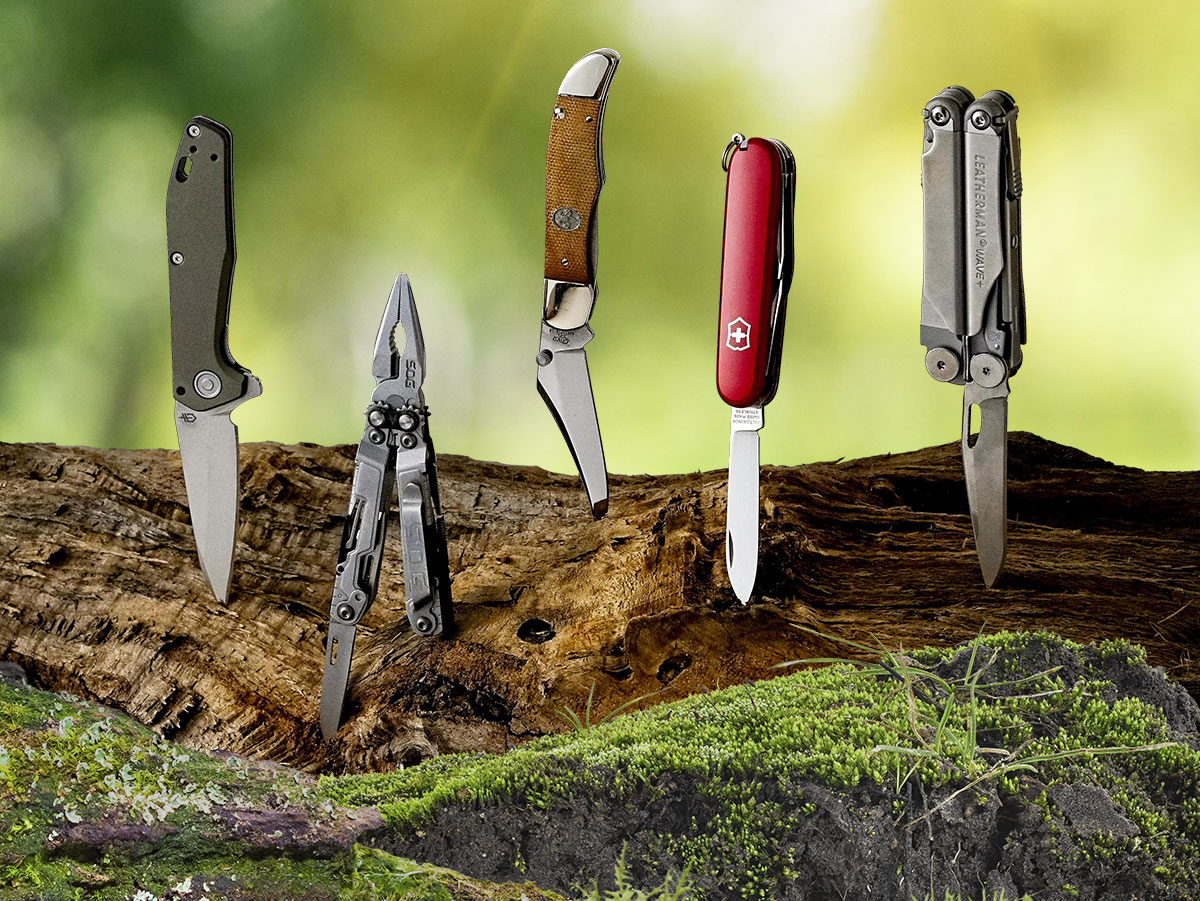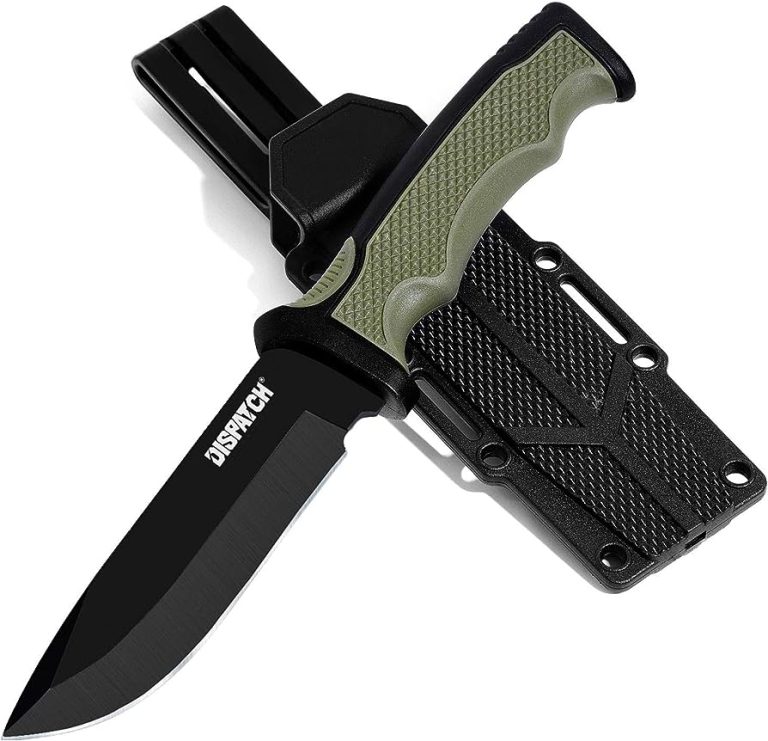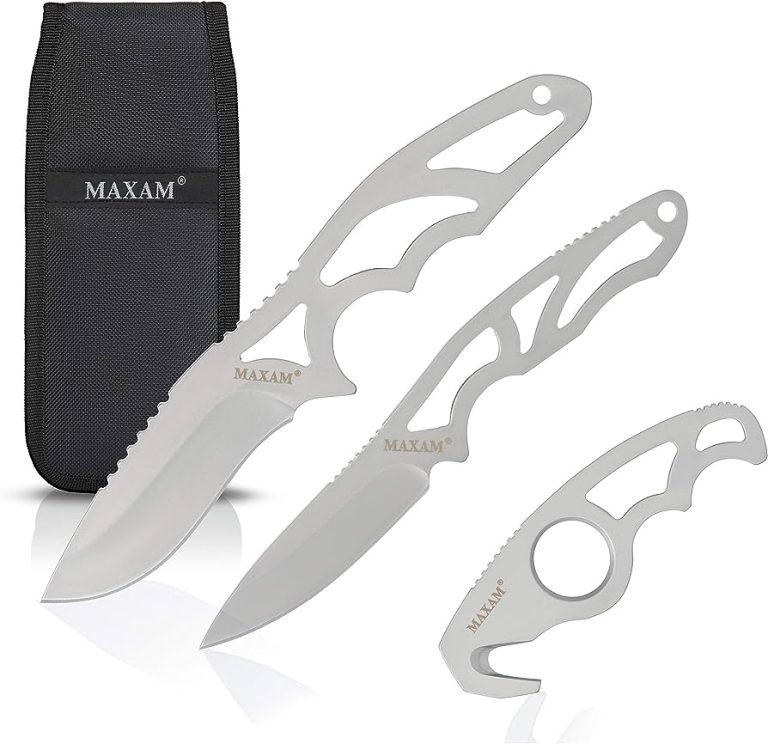Hunting Knife Etiquette: Respect for the Outdoors
Hunting knife etiquette involves showing respect for the outdoors by following proper guidelines. When using a hunting knife, it is important to handle it safely, use it responsibly, and treat both the knife and the environment with care and appreciation.
Respect for the outdoors includes not only ethical hunting practices, but also proper knife handling, maintenance, and disposal. By adhering to hunting knife etiquette, hunters can ensure the safety of themselves and others, while also preserving the environment for future generations to enjoy.
Hunting knife etiquette is an essential aspect of responsible hunting. It entails not only following ethical hunting practices but also demonstrating respect for the environment and the tools we use. When it comes to using a hunting knife, it is vital to handle it safely and responsibly. Treating the knife with care and appreciation extends beyond its practical uses. It also involves proper maintenance and disposal to uphold our duty towards the outdoors. By adhering to hunting knife etiquette, hunters can ensure their own safety, as well as the preservation of the environment for future generations.
Why Hunting Knife Etiquette Matters
Hunting Knife Etiquette: Respect for the Outdoors
Respecting the outdoors and practicing proper hunting knife etiquette is crucial for a successful and enjoyable hunting experience. Understanding the significance of this etiquette ensures that we maintain a harmonious relationship with nature and fellow hunters. By following some simple guidelines, we can contribute to the preservation of wildlife and the environment.
When using a hunting knife, it is essential to handle it with care and respect. Always keep the knife sharp and in good condition to ensure clean and humane kills. Dispose of any waste properly, avoiding leaving any litter behind in the wilderness. By adhering to these principles, we demonstrate our commitment to conservation and responsible hunting practices.
Proper hunting knife etiquette also extends to interacting with other hunters. Be courteous and considerate of their presence, allowing ample space and refraining from interfering with their activities. This fosters a sense of camaraderie and respect within the hunting community.
Remember, hunting knife etiquette is not just a set of rules but a way of showing respect to the outdoors and preserving the beauty of nature for future generations of hunters to enjoy.
Choosing The Right Hunting Knife
In the process of hunting, having the right hunting knife is crucial for various tasks such as field dressing, skinning, and butchering game. To find the perfect hunting knife for your needs, there are a few factors to consider:
- Blade Length and Shape: The blade length should be appropriate for the tasks you intend to perform. A drop-point or clip-point blade shape is versatile for many hunting applications.
- Blade Material: Look for high-quality stainless steel or carbon steel blades that offer durability and edge retention.
- Handle Design and Material: The handle should provide a secure grip and be comfortable to hold for extended periods. Materials like rubber, wood, or synthetic composites offer good grip and durability.
- Tang Type: Consider a hunting knife with a full tang, where the blade extends throughout the handle, for added strength.
- Locking Mechanism: Folding knives with sturdy locking mechanisms provide safety during use.
- Budget: Determine your budget and find a hunting knife that offers the best value for your money.
By taking these factors into account, you can choose a hunting knife that suits your specific needs and shows respect for the outdoors.
Proper Handling And Maintenance
Hunting knife etiquette is essential to maintaining respect for the outdoors. One crucial aspect of proper handling and maintenance is understanding the importance of caring for your hunting knife. To ensure longevity and optimal performance, it is crucial to clean and maintain your knife regularly.
Here are some helpful tips for cleaning and maintaining your hunting knife:
| Tips |
|---|
| Regularly wipe the blade with a clean cloth to remove any dirt or debris. |
| Use a mild detergent or soap to clean the blade, followed by thorough drying to prevent rusting. |
| Apply a thin layer of oil to the blade and handle to prevent corrosion and maintain smooth operation. |
| Avoid using harsh chemicals or abrasive materials that may damage the blade’s coating or handle. |
| Store your hunting knife in a dry and clean sheath or case to protect it from moisture and physical damage. |
| Regularly sharpen the blade using appropriate sharpening tools and techniques to maintain its cutting efficiency. |
By following these guidelines, you can ensure that your hunting knife remains in excellent condition, allowing you to show proper respect for the outdoors during your hunting expeditions.
Safety Measures While Using A Hunting Knife
Using a hunting knife requires utmost caution and respect for the outdoors. Safety measures should be diligently followed to prevent accidents and injuries in the wilderness. Here are some precautions to keep in mind:
- Always handle the knife with care, keeping it pointed away from yourself and others.
- Ensure a secure grip on the knife, using proper hand positioning to avoid slips.
- Keep the blade sharp to minimize the risk of unexpected slips or increased force.
- Only use the knife for its intended purpose, avoiding reckless behavior.
- Be aware of your surroundings and the presence of others to prevent accidental collisions.
- When transporting the knife, ensure it is securely sheathed or stored to avoid accidental cuts.
Respecting the outdoors means leaving no trace and adhering to ethical hunting practices. By practicing safe knife use, you can enjoy the wilderness while minimizing the risk of harm.
Knife Skills And Techniques
Knife Skills and Techniques
As a responsible hunter, developing effective knife skills is crucial for a successful and ethical hunting experience. Whether it’s field dressing game or preparing meals at camp, having the proper techniques is essential for safety and efficiency.
One of the primary skills to focus on is knowing how to handle a knife safely. Keeping a firm grip on the handle and using a controlled cutting motion helps prevent accidents and injuries. It is also important to keep your knife sharp to ensure clean and precise cuts.
Learning essential techniques for specific tasks is also vital. For instance, when field dressing game, knowing how to properly skin and separate animal parts ensures effective processing and minimizes waste. It is advisable to seek guidance from experienced hunters or participate in educational programs to acquire these skills.
Lastly, it’s important to remember that respect for the outdoors extends to handling and using your hunting knife. Always clean and care for it after every use to maintain its longevity and functionality. By practicing proper knife etiquette and techniques, you not only enhance your hunting capabilities but also demonstrate reverence for the animals and environment you encounter.
Ethical Considerations
Ethical Considerations
Understanding ethical hunting practices and demonstrating respect for wildlife and the environment are crucial aspects of hunting knife etiquette. As responsible hunters, it is our duty to uphold these principles:
- Adhere to all hunting regulations and laws set by the local authorities.
- Practice fair chase, ensuring that the target has a genuine opportunity to escape.
- Use the appropriate size and type of hunting knife for the intended game.
- Make clean and humane kills to minimize suffering.
- Properly dispose of remains and avoid wastage of game.
- Respect the environment by not damaging flora, fauna, or property.
By following these ethical considerations, hunters can not only enjoy their sport but also preserve the outdoors for future generations. Remember, hunting knife etiquette is not just about skill, but also about respect.
Knife Storage And Transport
Storing your hunting knife safely when not in use is essential for both the longevity of the knife and your personal safety. **Proper knife storage** helps prevent accidents and ensures that your blade remains sharp and ready for use. Follow these guidelines to store your hunting knife effectively:
1. **Clean and dry** your knife thoroughly before storing it. Moisture can cause rust and damage the blade, so make sure it is completely dry.2. **Use a sheath or a knife case** to protect the blade and handle from scratches or accidental cuts. A well-fitted sheath or case will keep the knife securely in place.3. **Store your knife in a cool, dry place** away from direct sunlight and extreme temperatures. Avoid areas that are prone to humidity or moisture.4. **Keep the knife out of reach of children and pets** to prevent accidents.5. **Avoid storing your knife alongside other sharp objects** that could potentially damage the blade or cause injuries.Remember, proper knife storage is crucial for maintaining the quality of your hunting knife and ensuring your safety. Use these guidelines to keep your knife in top condition when not in use.Knife Disposal And Recycling
Hunting Knife Etiquette: Respect for the Outdoors
Proper ways to dispose of old or damaged hunting knives:
When it’s time to retire your hunting knife, it’s important to handle its disposal responsibly. There are a few environmentally-friendly options for recycling hunting knives. One option is to check with your local recycling center to see if they accept metal objects like knives. They may have specific guidelines for knife disposal, such as requiring the blade to be securely wrapped in tape or placed inside a plastic container. Consider reaching out to knife manufacturers as well, as they may have take-back programs or suggestions for proper disposal.
Additionally, some knife retailers and outdoor stores may offer recycling services for hunting knives. They might have designated collection bins or participate in recycling initiatives. Alternatively, you can explore metal recycling facilities in your area, as they often accept knives for recycling. Remember, proper disposal of hunting knives not only shows respect for the outdoors but also helps protect the environment.
Teaching Hunting Knife Etiquette To Others
Hunting knife etiquette is an essential aspect of respecting the outdoors. Teaching others about proper knife use and being responsible while hunting can help preserve the environment and promote safety. By sharing our knowledge and educating fellow hunters, we can ensure that ethical practices are followed.
It is crucial to emphasize the importance of handling knives with care and respect. This includes proper maintenance and storage of hunting knives, as well as using them only for their intended purposes. **Responsible knife use** involves being aware of one’s surroundings, **practicing caution**, and **using the knife only when necessary**.
Sharing our expertise on hunting knife etiquette can help prevent accidents and promote ethical behavior among hunters. **Teaching others about knife safety** and following **ethical hunting practices** can contribute to the preservation of nature and the enjoyment of outdoor activities for generations to come.

Credit: scoutlife.org
Conclusion
Respecting the outdoors and practicing proper hunting knife etiquette is crucial for every outdoor enthusiast. By understanding and following these guidelines, you can ensure a safe and enjoyable hunting experience while also preserving the environment for future generations. Remember, always handle your hunting knife with utmost care, keeping it sharp and clean.
Dispose of any waste properly to minimize your impact on the surroundings. Furthermore, show respect for the animals you encounter by using your hunting knife responsibly and ethically. It is essential to continue educating ourselves and others about the importance of respecting the outdoors, as this will ensure the sustainability of our cherished natural resources.
So, embrace these principles of hunting knife etiquette and be an example of responsible outdoor behavior. Let’s work together to keep our hunting grounds pristine and harmonious for all.






